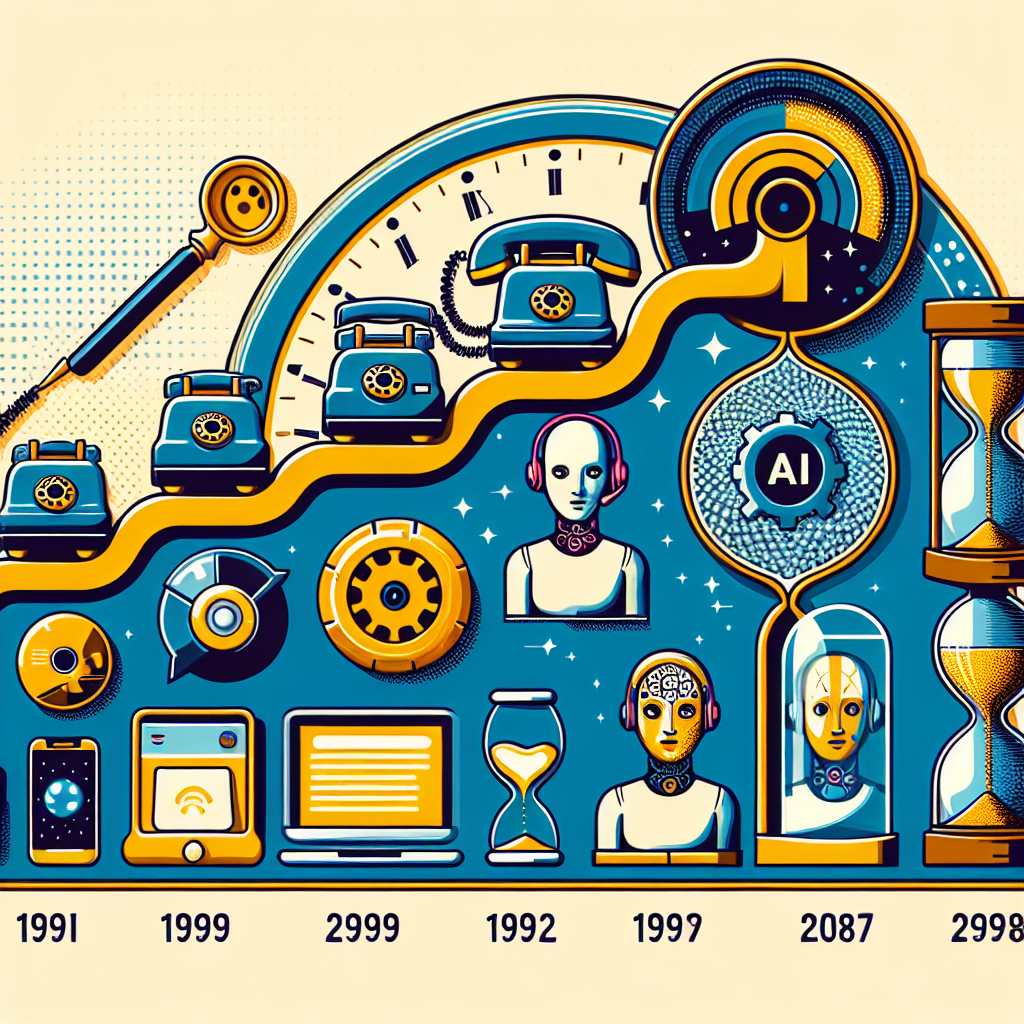The Evolution of AI in Customer Service: A Historical Perspective
Artificial Intelligence (AI) has come a long way in the field of customer service, revolutionizing the way businesses interact with their customers. From simple chatbots to advanced virtual assistants, AI has transformed the customer service landscape, providing faster, more efficient, and personalized support to consumers. In this article, we will take a historical perspective on the evolution of AI in customer service, exploring its key milestones and advancements over the years.
Early Beginnings: The Rise of Chatbots
The concept of AI in customer service can be traced back to the early 2000s, when chatbots started gaining popularity as a tool for providing automated customer support. These early chatbots were simple rule-based systems that could respond to basic queries and provide predefined answers to common questions. While limited in their capabilities, these chatbots marked the beginning of AI’s role in customer service, paving the way for more advanced applications in the years to come.
One of the first widely adopted chatbots was ALICE (Artificial Linguistic Internet Computer Entity), developed by Richard Wallace in the late 1990s. ALICE was a natural language processing (NLP) chatbot that could engage in conversations with users and provide answers to a wide range of questions. While rudimentary by today’s standards, ALICE demonstrated the potential of AI to enhance customer service interactions and set the stage for further advancements in the field.
The Rise of Virtual Assistants
As AI technology continued to evolve, virtual assistants emerged as a more sophisticated form of AI-powered customer service. Virtual assistants are AI-driven programs that can understand natural language, learn from interactions, and provide personalized assistance to users. Companies like Apple, Google, and Amazon have all developed their own virtual assistants, such as Siri, Google Assistant, and Alexa, respectively.
Virtual assistants have become increasingly popular in customer service, thanks to their ability to handle a wide range of tasks, from answering questions to scheduling appointments and even making purchases. By leveraging AI technologies like machine learning and natural language processing, virtual assistants can provide more accurate and personalized support to customers, enhancing the overall customer experience.
The Evolution of AI in Customer Service: Key Milestones
Over the years, AI in customer service has undergone significant advancements, leading to the development of more sophisticated and intelligent systems. Some of the key milestones in the evolution of AI in customer service include:
1. Natural Language Processing (NLP): NLP is a branch of AI that focuses on enabling machines to understand and interpret human language. By leveraging NLP technology, customer service systems can analyze and respond to customer queries in real-time, providing more accurate and relevant answers.
2. Machine Learning: Machine learning is a subset of AI that enables systems to learn from data and improve their performance over time. By using machine learning algorithms, customer service systems can adapt to new information and make more informed decisions, leading to better customer interactions.
3. Sentiment Analysis: Sentiment analysis is a technique that uses AI to analyze customer feedback and determine the emotional tone behind it. By incorporating sentiment analysis into customer service systems, businesses can better understand customer sentiment and tailor their responses accordingly.
4. Predictive Analytics: Predictive analytics uses AI algorithms to analyze historical data and predict future trends and outcomes. By leveraging predictive analytics in customer service, businesses can anticipate customer needs and proactively address issues before they arise.
5. Omnichannel Support: AI-powered customer service systems now offer omnichannel support, allowing customers to interact with businesses across multiple channels, such as phone, email, chat, and social media. By integrating AI across all channels, businesses can provide a seamless and consistent customer experience.
FAQs:
Q: How has AI improved customer service in recent years?
A: AI has improved customer service by providing faster response times, personalized support, and 24/7 availability. AI-powered systems can analyze large volumes of data, learn from interactions, and provide more accurate and relevant responses to customer queries.
Q: What are some common applications of AI in customer service?
A: Some common applications of AI in customer service include chatbots, virtual assistants, sentiment analysis, predictive analytics, and omnichannel support. These applications help businesses automate routine tasks, personalize interactions, and enhance the overall customer experience.
Q: How can businesses benefit from implementing AI in customer service?
A: Businesses can benefit from implementing AI in customer service by improving efficiency, reducing costs, increasing customer satisfaction, and gaining a competitive edge in the market. AI-powered systems can handle a higher volume of customer inquiries, provide faster response times, and deliver more personalized support.
Q: What are some challenges associated with implementing AI in customer service?
A: Some challenges associated with implementing AI in customer service include data privacy concerns, ethical considerations, and the need for ongoing training and maintenance. Businesses must ensure that AI systems are secure, transparent, and compliant with regulations to build trust with customers.
In conclusion, the evolution of AI in customer service has transformed the way businesses interact with their customers, providing faster, more efficient, and personalized support. From simple chatbots to advanced virtual assistants, AI has revolutionized the customer service landscape, offering a wide range of applications to enhance the overall customer experience. As AI technology continues to evolve, businesses can expect even more advancements in the field of customer service, leading to more intelligent and intuitive systems that meet the ever-changing needs of consumers.

